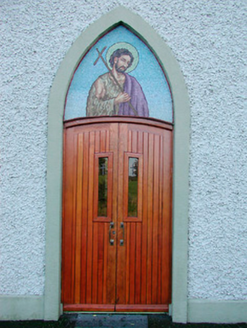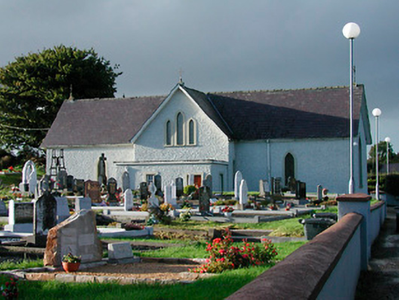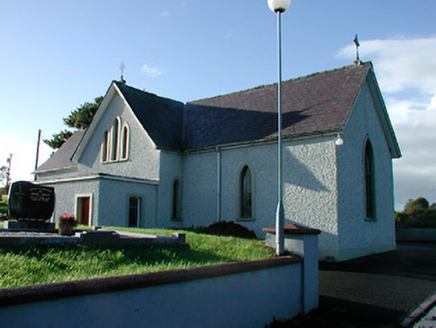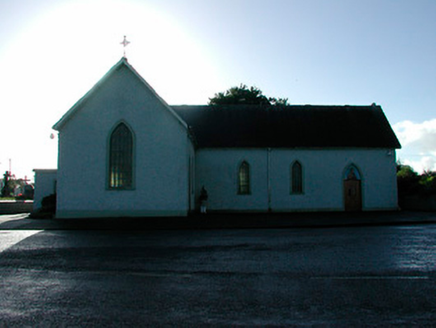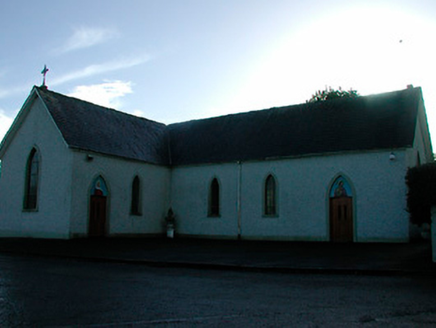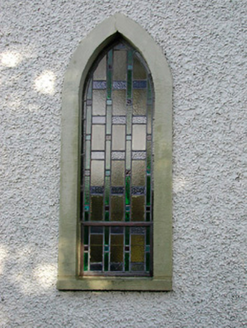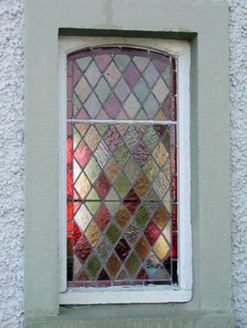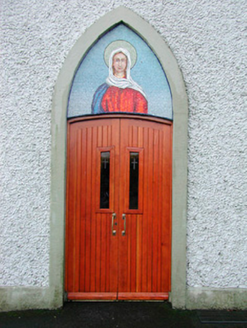Survey Data
Reg No
15400711
Rating
Regional
Categories of Special Interest
Architectural, Social
Previous Name
Saint Mary's Catholic Church
Original Use
Church/chapel
In Use As
Church/chapel
Date
1820 - 1840
Coordinates
246401, 266315
Date Recorded
06/10/2004
Date Updated
--/--/--
Description
Detached Roman Catholic chapel on cruciform plan, built c.1830 and renovated c.1970, comprising three-bay nave to the north, two-bay transepts to the west and a shallow chancel to the south. Later single-storey sacristy with flat roof attached to chancel gable (south) Pitched natural slate roofs, projecting eaves course, cast-iron rainwater goods and wrought-iron Celtic cross finials to gable ends. Roughcast rendered walls over smooth rendered plinth course. Pointed-arched window openings having plain surrounds and stained glass windows. Three graded lancet openings to chancel gable having stained glass windows. Pointed-arch doorcase with plain surround having rendered surrounds, replacement segmental-headed timber double doors with figurative mosaic insets over. Freestanding cast-iron belfry adjacent to the south, standing in modern graveyard. Cut stone font built into exterior wall to the north, probably taken from an earlier church site. Located to the south of Castlepollard adjacent to rural road junction. Monument to interior commemorating Rev. Michael Lynch, died 1845.
Appraisal
A plain early nineteenth-century Roman Catholic chapel, probably originally T-plan in form, which retains its early form and much of its early character. This structure is typical of the plain, almost vernacular, chapels that were built in great numbers throughout the Irish countryside in the years before and immediately after Catholic Emancipation (1829). The absence of an attached belfry is the result of restrictions imposed by the authorities on all non-established churches at the time (pre-Emancipation). This church was given a rather severe renovation, c.1970, and this has detracted somewhat from it architectural and historical importance. The cut stone font, built into a boundary wall to the north, may be quite early and taken from an earlier church, possibly the medieval church at Faughalstown (to the west) which was used for parish burials until relatively recently. This church at Whitehall remains an interesting feature of some appeal in the landscape to the south of Castlepollard and is of social and historical significance to the local area. The cast-iron belfry completes the setting and adds to this composition.
